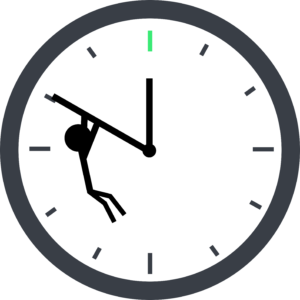
Cognitive Function and Brain Health | Strategies for Lifelong Mental Sharpness
Maintaining cognitive function is essential for enjoying a long, fulfilling life. As we age, our brains naturally undergo changes, but proactive steps can help preserve mental sharpness and reduce the risk of cognitive decline. By focusing on brain health, you can enhance memory, problem-solving, and overall mental resilience.
This guide explores the factors affecting cognitive function, strategies for promoting brain health, and practical tips for supporting lifelong mental sharpness.
Understanding Cognitive Decline
Natural Cognitive Changes with Age
- Processing Speed: Slows over time, making it harder to multitask.
- Memory: Short-term memory may require more effort, though long-term memory often remains intact.
- Attention: Sustaining focus can become more challenging.
Common Cognitive Conditions
- Mild Cognitive Impairment (MCI): Characterised by noticeable memory lapses that don’t significantly interfere with daily life.
- Dementia: A more severe condition involving memory loss, language difficulties, and impaired problem-solving.
Early intervention is key to managing these changes and preserving mental function.
Key Factors Affecting Brain Health
- Genetics
Family history can influence the risk of conditions like Alzheimer’s disease, but lifestyle choices can modify outcomes.
- Lifestyle Choices
Diet, exercise, and sleep significantly impact brain health. Poor habits can accelerate cognitive decline, while healthy behaviours enhance mental resilience.
- Environmental Factors
Exposure to pollution, toxins, and chronic stress can negatively affect brain function over time.
Diet and Nutrition for Brain Health
- Omega-3 Fatty Acids
-
- Found in fatty fish (e.g., salmon, mackerel) and walnuts, these support brain cell structure and function.
- Antioxidants
-
- Blueberries, spinach, and dark chocolate protect the brain from oxidative stress and inflammation.
- Whole Grains
-
- Foods like oats and quinoa provide steady energy to the brain through glucose.
- Limit Processed Foods
-
- High-sugar and high-fat diets can contribute to brain inflammation and impair memory.
The Role of Physical Activity
Exercise doesn’t just benefit your body—it’s crucial for your brain.
- Promotes Neurogenesis: Physical activity encourages the growth of new brain cells, particularly in the hippocampus, which supports memory.
- Improves Blood Flow: Increased circulation delivers oxygen and nutrients to the brain.
- Reduces Risk of Cognitive Decline: Regular exercise is linked to a lower risk of Alzheimer’s disease.
Recommendations
- Aim for 150 minutes of moderate aerobic activity per week.
- Include strength training to support overall health and mobility.
Mental Stimulation and Lifelong Learning
Challenging your brain keeps it active and resilient.
- Learn New Skills: Take up a hobby, learn a language, or play a musical instrument.
- Solve Puzzles: Activities like crosswords, Sudoku, and strategy games strengthen problem-solving skills.
- Read Regularly: Reading engages multiple areas of the brain and improves cognitive reserve.
Social Connections and Brain Health
Human connection is vital for mental and emotional wellbeing.
- Strong Social Networks: Regular interactions with family and friends reduce stress and enhance mental resilience.
- Group Activities: Joining clubs or volunteering stimulates the brain through collaboration and shared purpose.
The Impact of Sleep on Cognitive Function
Quality sleep is essential for memory consolidation and brain repair.
- Memory: Sleep strengthens neural connections formed during the day.
- Brain Detoxification: The brain clears waste products, including amyloid plaques, during deep sleep.
- Focus and Problem-Solving: Rested brains perform better in cognitive tasks.
Tips for Better Sleep
- Maintain a consistent sleep schedule.
- Avoid caffeine and screens before bed.
- Create a calming bedtime routine to promote relaxation.
Practical Tips for Maintaining Brain Health
- Eat Brain-Boosting Foods: Incorporate omega-3s, antioxidants, and whole grains into your diet.
- Stay Active: Engage in both physical and mental exercises regularly.
- Manage Stress: Practice mindfulness, yoga, or deep breathing techniques.
- Sleep Well: Prioritise sleep quality to support brain repair and memory.
- Stay Social: Build strong relationships and participate in community activities.
Debunking Myths About Cognitive Decline
Myth: Cognitive Decline Is Inevitable
Healthy habits can significantly slow cognitive ageing and reduce risks.
Myth: Brain Health Is Fixed in Early Life
The brain remains adaptable throughout life, thanks to neuroplasticity.
Myth: Supplements Alone Solve Cognitive Issues
While helpful, supplements should complement a healthy lifestyle rather than replace it.
Your Brain Health Journey Starts Here
Supporting cognitive function is about more than just avoiding decline—it’s about thriving mentally at every stage of life. By adopting healthy habits and staying proactive, you can protect your brain and enhance your quality of life.
At Slowing the Clock, we’re here to provide guidance, tools, and resources to help you prioritise your brain health. Explore our website for more tips on nutrition, exercise, and mental wellbeing.